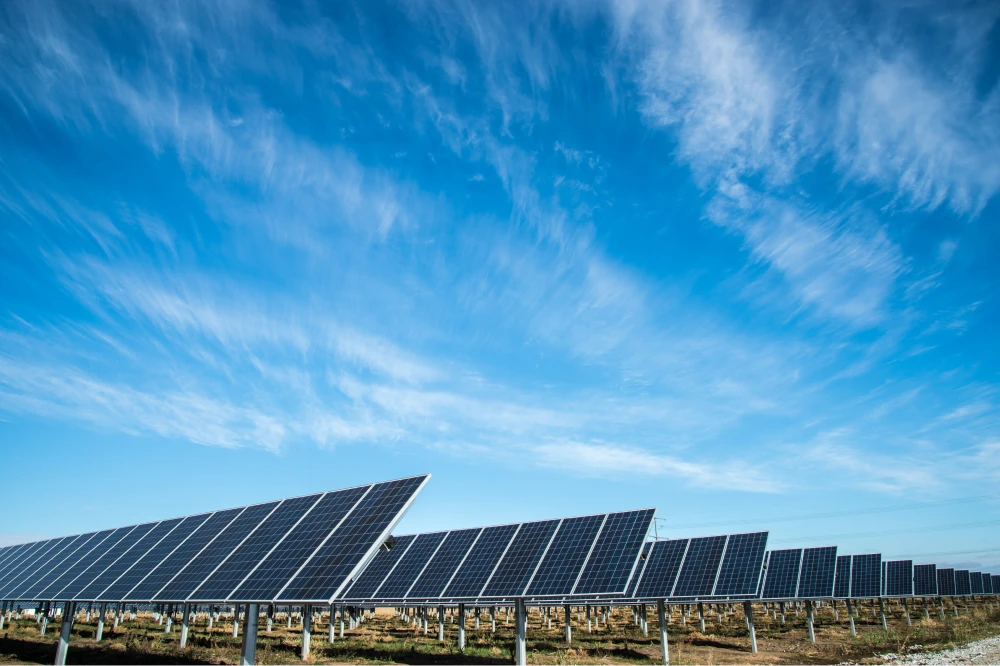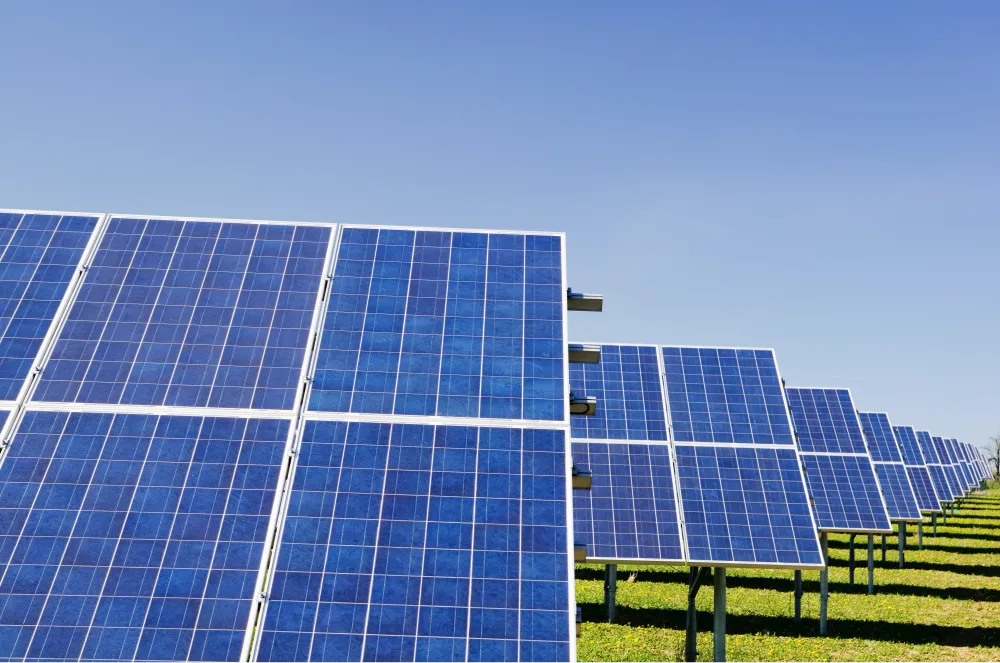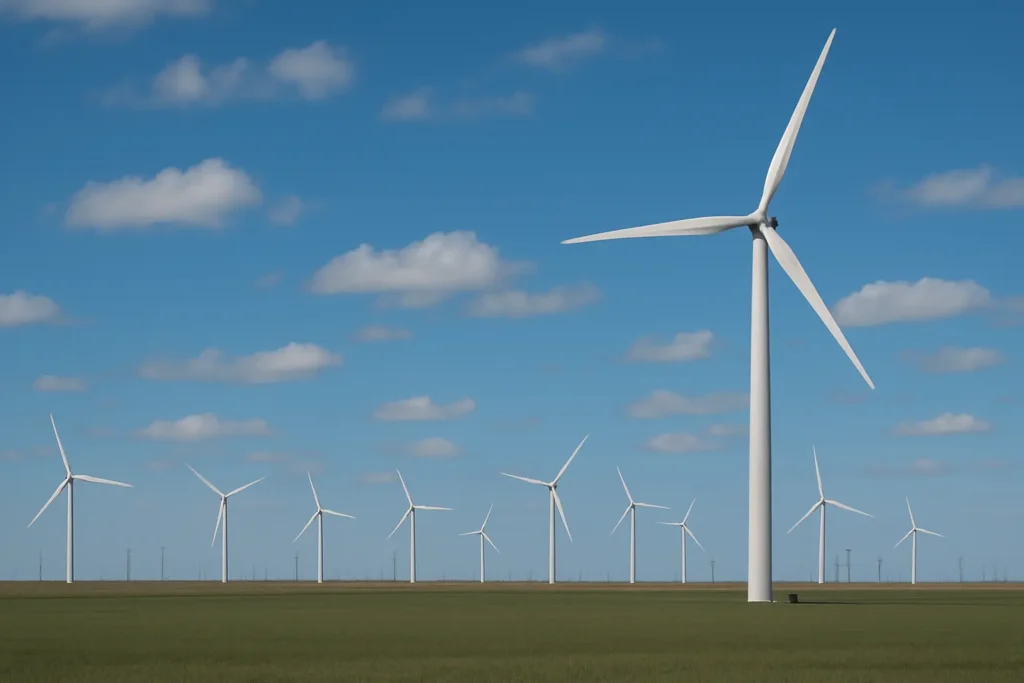The Largest Solar Farms in Texas: 2025
3 minute readTexas's largest solar farms, upcoming projects, and their impact on grid reliability.
Home > Learning Center > Energy Production > Pros and Cons of Solar Energy
4 minute read • Last update September 2024

| Pros of solar energy | Cons of solar energy |
|---|---|
| Sun is a renewable and abundant source of energy | Intermittence, variability, and weather dependence |
| No pollution or greenhouse gases during operation | High initial costs |
| Low operating costs | Energy storage challenges |
| Job creation | Solar farms require a lot of land |
| Reduced impact to local environments compared to fossil fuel plants | Resource-intensive manufacturing |
| Can be installed quickly | Aesthetics |
| Can be installed on otherwise unusable land | Geographic limitations on installation |
| Scalability | Limited energy conversion efficiency |
| Consistent technological advancements | Difficult to dispose of old panels |
| Energy independence | Grid integration challenges |
| Limited lifetime of solar panels |
As long as the sun exists (barring a very unexpected supernova explosion or the untimely arrival of an alien species from another galaxy with technology to absorb our sun’s gases), solar energy is a 100% renewable and inexhaustible resource to fuel the generation of electricity. Luckily, the sun is not yet old enough to go through a supernova and the arrival of alien species seems rather unlikely.
The use of solar power to generate electricity produces minimal environmental pollution compared to fossil fuels. This helps reduce the production of greenhouse gases and combat climate change.
After solar panels are installed, the cost to operate and maintain them is very low. There are fewer expenses related to their operation and maintenance compared to fossil fuel generation plants.
There are over 250,000 workers employed in the solar power industry in the United States. As the market for solar continues to grow, so will job creation.
In comparison to traditional power plants, solar farm installations have a lower impact to their surroundings. The land can serve multiple purposes – some solar farms are also used for agriculture.
Compared to other types of power plants, such as nuclear or fossil fuel plants, solar farms can be implemented rather quickly. The construction is not as involved and there are fewer regulations and hoops to jump through.
Solar farms can be installed on land that would otherwise go unused, such as in the desert or on top of landfills.
Solar panels can be built and installed in a wide variety of sizes and implementations, from small-scale roof-top installations to massive utility-scale farms.
The science behind solar panels is ever-improving. As energy efficiency improves, solar panels and farms become more and more cost-effective.
For homeowners, solar panels increase energy independence from the grid, even when there are power outages. On a larger scale, solar farms increase independence for state and federal governments from fossil fuel imports.

Solar power generation is dependent on sunlight, which is intermittent and variable. Cloudy days, nighttime, and seasonal changes can affect energy production, requiring backup or storage solutions. Extreme weather conditions, such as hailstorms, can damage solar panels, affecting their performance and lifespan.
During a snowstorm, extra maintenance may be required to keep the panels clean. If they are covered in snow, they cannot generate power.
The upfront costs of purchasing and installing solar panels and associated equipment can be relatively high. While prices have been decreasing, the initial investment can remain a significant barrier.
To address the intermittent nature of solar power, energy storage solutions like batteries are often needed. Current energy storage technologies have limitations in terms of capacity, efficiency, and cost.
Large-scale solar installations may require significant land area, potentially leading to concerns about land use, habitat disruption, and conflicts with agricultural activities. Although as mentioned above, some solar farms have found a solution to this issue by using the land for agriculture at the same time.
The production of solar panels involves the use of rare materials and can be energy-intensive, raising environmental concerns. Improvements in manufacturing processes are needed to mitigate these impacts.
Some people find solar panels unattractive, especially on residential properties. This can lead to aesthetic concerns and, in some cases, regulatory challenges.
Solar energy production is more effective in regions with high sunlight exposure, limiting its effectiveness as a power generation solution in some geographic locations where sunlight is scarce or inconsistent.
Solar panels have a conversion efficiency that varies, and it may not be as high as some other forms of energy generation. Advances in technology are needed to improve efficiency.
While efforts are made to minimize environmental impact, proper disposal and recycling practices are crucial. The manufacturing and disposal of solar panels can involve the use of toxic materials.
Integrating solar power into existing electricity grids can pose challenges due to its intermittent nature. Upgrading and modifying grids to handle distributed generation can be costly.
While solar panels have a relatively long lifespan, they do degrade over time, and their efficiency decreases. Proper disposal and recycling practices are essential to manage end-of-life environmental impacts.
At the same time, solar panel technology is improving rapidly. That means by the time you complete an installation, there’s already a newer more efficient model out there.
Graham Lumley, Digital Marketing Manager at BKV Energy, leads digital and traditional marketing strategies, focusing on educating Texans about the state's deregulated energy market. With over 8 years of marketing experience, he creates content to help consumers understand and save on their energy bills, bringing a fresh and dynamic approach to the industry.

Texas's largest solar farms, upcoming projects, and their impact on grid reliability.

Discover how Texas dominates U.S. wind power with massive utility-scale projects.
Get $50 off your electric bill!
Use code BKVEJOINUS50
Enter your zip code to shop BKV Energy's affordable, fixed-rate Texas electricity plans. Use the promo code for $50 off your electric bill.